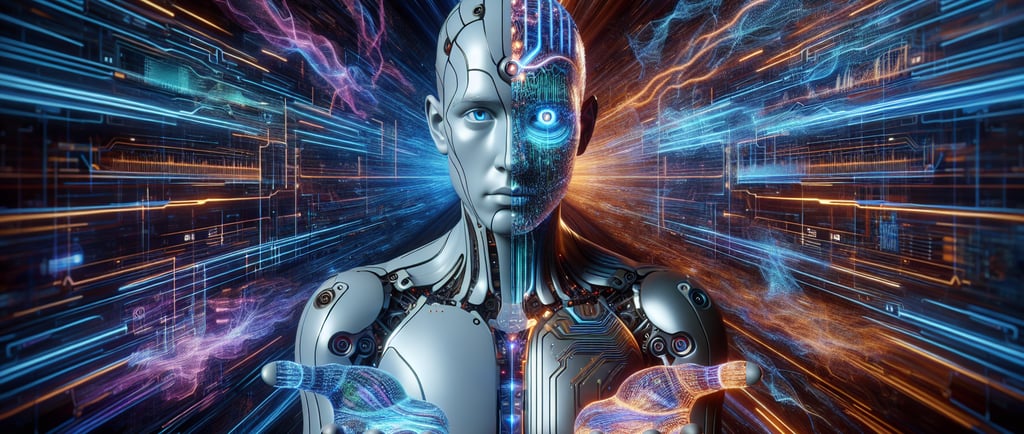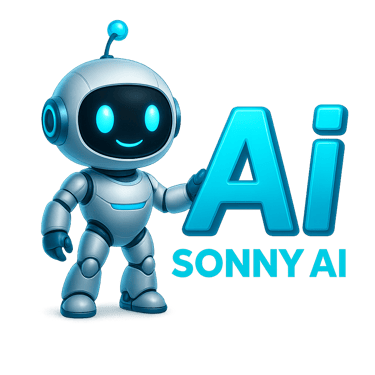Adapting to AI in Programming Jobs
Explore how AI tools enhance programming productivity without replacing jobs, and learn strategies for developers to adapt and grow with AI.
7/23/20258 min read


Adapting To Ai In Programming Jobs
Artificial intelligence is transforming programming by automating routine coding tasks and augmenting developer productivity with tools like GitHub Copilot and ChatGPT. Although AI accelerates coding and debugging, complex software design, ethical decisions, and system integration still require human expertise.
Industry research predicts AI will automate parts of coding but not replace programmers, instead shifting job roles towards creative collaboration with AI. Programmers can thrive by learning AI-related skills, focusing on system architecture, and embracing AI as a partner to enhance rather than threaten their careers.
AI has made significant strides in programming assistance, primarily through AI-powered coding tools that augment developer productivity without replacing the essential roles programmers play. Tools such as GitHub Copilot and ChatGPT exemplify this trend by providing intelligent code generation, autocompletion suggestions, and debugging assistance.
GitHub Copilot, launched by GitHub and OpenAI, utilizes large language models trained on vast repositories to offer context-aware code snippets and accelerate coding workflows. Similarly, ChatGPT can generate code segments, explain functionalities, and help troubleshoot errors on demand.
These AI tools assist developers by automating routine and repetitive coding tasks, improving efficiency and potentially reducing human error. Debugging aids highlight syntax or logical errors and suggest fixes, speeding up the iterative development process. However, despite their capabilities, these systems still face limitations.
Their understanding of the broader software context is limited since they generate outputs primarily based on patterns in training data rather than true comprehension. Creativity, nuanced design decisions, and architectural judgment remain challenging areas for AI tools.
Moreover, AI-generated code can occasionally perpetuate bugs or security vulnerabilities present in training data, underscoring the need for human review and curation.
Thus, current AI tools act as powerful collaborators that augment programmer skills, improving productivity and allowing developers to focus more on complex and creative aspects of software development rather than fully replacing programmers.
Despite impressive advances, AI still faces significant challenges in fully automating the programming profession. Software development demands more than coding; it requires understanding complex system architectures, integrating with legacy codebases, and making nuanced design decisions that cannot be wholly delegated to AI.
Modern enterprise applications often involve intricate interdependencies, domain-specific knowledge, and customized requirements that exceed current AI capabilities.
Maintaining and evolving legacy systems presents particular challenges since these codes are often poorly documented, inconsistent, or fragile, necessitating human insight and experiential knowledge to navigate safely. Furthermore, software development encompasses problem-solving, creative thinking, and ethical considerations—areas where human judgment and oversight remain indispensable.
Expert opinions generally suggest that while AI will continue to automate aspects of coding, fully replacing programming jobs within the near future is unlikely. For instance, senior technologists and researchers emphasize that AI complements rather than supplants human developers.
As per some forecasts, notable levels of automation of coding tasks may occur within five to ten years, but complete autonomy in software creation by AI remains a distant prospect. Thus, the nuanced understanding, creativity, and supervisory roles that programmers fulfill will continue to be critical for the foreseeable future.
Recent research and industry reports provide a balanced and data-driven assessment of AI's impact on programming jobs over the next five years. A 2023 Gartner report projects that AI-driven tools will augment developers’ productivity, potentially automating up to 30% of routine coding tasks by 2027, but they stop short of predicting mass displacement of programmers. Gartner highlights that such augmentation could lead to shifts within the profession, promoting roles focused on higher-level design and human-AI collaboration.
Similarly, a 2023 McKinsey Global Institute study estimates that while 15-25% of programming tasks can be automated with current AI technologies, overall programming employment is expected to remain stable due to increased demand for software across industries. The report emphasizes that new jobs requiring advanced skills in AI integration, system architecture, and data science will emerge.
Academic research published in 2024 in the Journal of Software Engineering Research supports these findings, noting that AI assistance reduces development time but needs human oversight to ensure quality and security. Experts like Dr. Maria Alvarez, a technology analyst at Forrester Research, comment that "programming roles are evolving rather than vanishing, with AI becoming a powerful co-developer that shifts job functions towards more strategic and creative tasks."
These credible sources collectively suggest a future where AI serves as an augmentation force, shifting the programmer's role rather than replacing it, emphasizing continuous adaptation.
As AI continues to reshape the software development landscape, programmers can proactively adapt through several practical strategies. Acquiring new skills, especially in AI and machine learning concepts, can empower developers to leverage AI tools effectively rather than compete against them. Understanding how AI assists in code generation, testing, and debugging will be crucial to maximizing these benefits.
Moreover, focusing on higher-level design and system architecture can distinguish programmers from automated code generators. These areas require holistic thinking and human-centric judgment that AI currently cannot replicate. Emphasizing problem-solving, critical thinking, and creativity will remain valuable skills.
Collaborating with AI tools by integrating them into development workflows helps programmers maintain productivity gains while controlling software quality and security. Viewing AI as a collaborator rather than a competitor fosters a more productive and positive work environment.
Continuous learning remains essential; staying current with emerging technologies, frameworks, and AI capabilities ensures resilience in a quickly evolving profession. Importantly, cultivating uniquely human capabilities—such as communication, ethical reasoning, and interdisciplinary collaboration—will open new opportunities.
Embracing AI as a tool for growth, not a threat, prepares programmers to thrive and innovate in the coming years, ensuring their careers remain dynamic and relevant in an AI-augmented future.
AI is significantly transforming programming by automating routine tasks and boosting developer productivity through tools like GitHub Copilot and ChatGPT. However, AI is not replacing programmers but rather shifting their roles towards more creative, strategic, and collaborative tasks that require human expertise, especially in complex system design, ethical considerations, and integration challenges.
Industry research consistently shows that AI will augment programming jobs rather than cause mass displacement, with new roles emerging that emphasize AI integration and advanced skills.
Programmers can adapt and thrive by acquiring AI-related knowledge, focusing on higher-level system architecture, fostering creativity and problem-solving skills, and embracing AI as a collaborative partner to enhance their work and career prospects.


